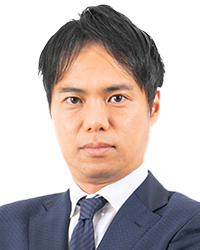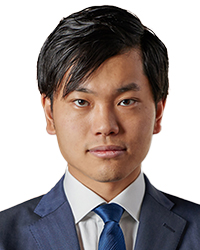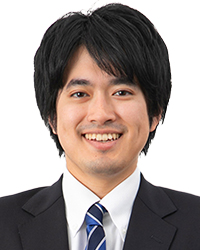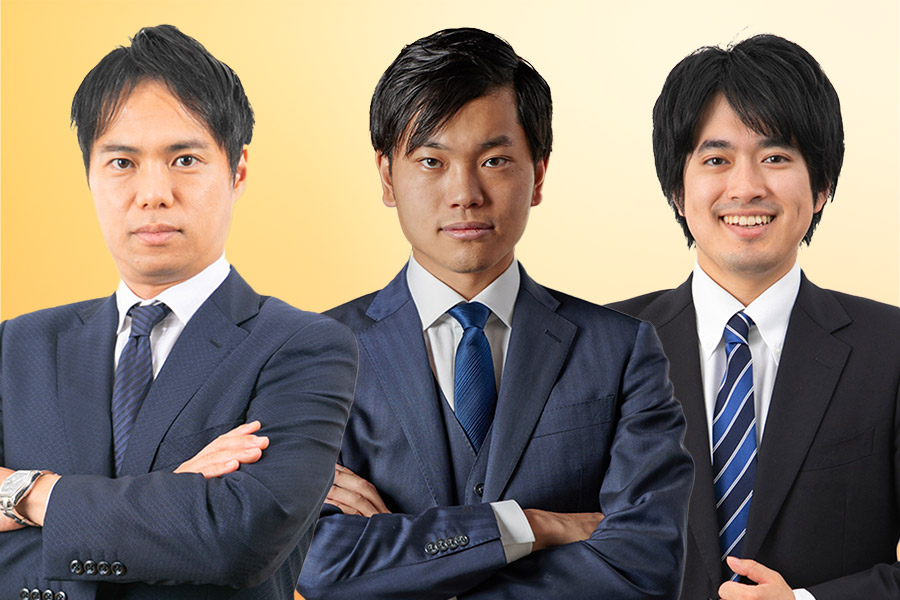As a general rule, gambling is prohibited under Japanese law, although a limited range of gambling activities – for example, government-authorised horse racing and certain land-based casino operations – are permitted as statutory exceptions.
With respect to casinos, the nation’s first integrated resort (IR), which will include a licensed land-based casino, is scheduled to open in Osaka in 2030. The Japanese government is expected to commence a second round of IR project applications in the near future.
It is important to emphasise that these exceptions apply solely to land-based casinos. Online casino operations remain strictly prohibited in Japan and fall outside the scope of the IR framework.
Esports regulations
 Tomohiro Takagi
Tomohiro Takagi
Attorney-at-Law at Nishimura & Asahi
(Gaikokuho Kyodo Jigyo) in Tokyo
Tel: +81 3 6250 6317
Email: t.takagi@plus.nishimura.com
From about 2010, Japan experienced a surge in smartphone games – particularly those featuring “loot boxes” – which resulted in heightened public concerns over consumer protection and, in turn, regulatory scrutiny of video games.
At that time, some legal experts opined that large-scale esports tournaments offering substantial prizemoney could not be held in Japan due to these consumer protection considerations.
However, in February 2018, Japan Esports Union (JESU) was established as a unified national organisation. Since then, JESU has engaged in active lobbying and policy development for esports regulations. As a result, Japan, long a global leader in video game culture, has made notable progress in the esports industry, including hosting international esports events and securing esports for the 2026 Asian Games.
As of 2025, the primary legal issues facing the development of esports in Japan remain gambling regulations and the rules governing game-related events.
Esports and gambling law
Japanese criminal law defines “gambling” very broadly. An activity may constitute gambling if it involves any element of chance, even when the outcome is influenced by the participant’s skill. Consequently, esports competitions may fall within the statutory definition of gambling, particularly in cases where an organiser collects entry fees from participants and funds the prizemoney from those fees. The tournament may be deemed gambling.
To avoid this classification, the prize pool money should not be derived, directly or indirectly, from entry fees. A common structure is to allocate all entry fees exclusively to operating expenses and have an independent sponsor provide all of the prizemoney.
However, even when a sponsor funds the prizes, the risk of a gambling classification remains if the prize arrangement is effectively equivalent to using participants’ fees, for instance, where the parent company of the event organiser serves as the sponsor. Therefore, each tournament format should be reviewed by experienced counsel to assess the risks. JESU has published guidelines that address the organisation of tournaments that charge entry fees to avoid gambling concerns (for details, see the section on game amusement business regulation).
Prizemoney restrictions eased
 Yuki Matsumoto
Yuki Matsumoto
Attorney-at-Law at Nishimura & Asahi
(Gaikokuho Kyodo Jigyo) in Tokyo
Tel: +81 3 6250 6317
Email:
y.matsumoto@plus.nishimura.com
International esports titles often award substantial prizemoney pools and attract significant public attention. However, at one time, it was widely understood that when a game publisher hosted an esports tournament in Japan, the Act against Unjustifiable Premiums and Misleading Representations (Premiums Act) capped the prizemoney at JPY100,000 (USD672).
The purpose of the Premiums Act is to prevent businesses from offering excessive prizes that might induce consumers to purchase low-quality products or distort competition. Because a publisher’s tournament effectively advertises the publisher’s own game – in part because players must own the game to practise and compete – publisher-funded prizemoney was viewed as a form of promotional “premium”, subject to the statutory cap.
Today, regulators and JESU recognise that prizemoney paid to professional players constitutes compensation for services rendered (i.e. for work performed) and thus falls outside the Premiums Act. As a result, high-value prizemoney pools generally are permitted.
Nevertheless, JESU encourages organisers to preserve the professional-services characterisation of prizemoney by: (1) issuing professional licences; (2) limiting participation to invited players; and (3) executing individual agreements with competitors.
If a third party other than the game’s publisher hosts a tournament, the Premiums Act typically does not apply. However, caution remains warranted, for example, if the organiser makes entry conditional on purchasing its own goods or services, or if the publisher provides financial support for the event.
Game business regulation
 Kazuki Ebihara
Kazuki Ebihara
Attorney-at-Law at Nishimura & Asahi
(Gaikokuho Kyodo Jigyo) in Tokyo
Tel: +81 3 6250 6542
Email: k.ebihara@plus.nishimura.com
Large open tournaments, such as those modelled on the international fighting-game event “EVO”, have become popular in Japan. However, under the Act on Control and Improvement of Amusement Businesses (Amusement Business Act), businesses that charge players to use game machines have traditionally been required to arrange prior police authorisation. This burdensome process limited large-scale, fee-based tournaments, and forced many events to be held on a “free to enter” basis.
In 2020, after negotiations between JESU and law enforcement authorities, guidelines were issued clarifying that a tournament would not be a regulated “amusement business” if entry fees do not exceed actual operating costs (e.g. venue and equipment expenses). On this basis, major tournaments such as EVO Japan now routinely charge entry fees, while remaining compliant under the Amusement Business Act.
Copyright considerations
When a third party hosts an esports tournament using a game it does not own, the event involves multiple copyrighted works, including: (1) the game software; (2) any music or audio-visual assets used during play or broadcast; and (3) performers’ rights of the voice actors and others appearing in the game.
Streaming or otherwise publicly transmitting tournament gameplay without authorisation infringes these rights under Japanese copyright law. Therefore, organisers must secure appropriate licences from the game publisher and other relevant rights holders. Some publishers provide public tournament guidelines or end-user terms covering esports events. Organisers should comply with these requirements.
Overseas player visa rules
Foreign residents who wish to participate in a prizemoney esports tournament in Japan must obtain an appropriate visa for performance or competition. Currently, Japan does not have a visa category specifically dedicated to esports athletes. In most cases, participants apply for a short-term “entertainer” or athlete visa.
However, depending on the nature of the event and the purpose of travel, other visa classifications may be required. Therefore, organisers must confirm the appropriate visa type for each tournament and prepare invitation letters as necessary for visa applications in advance.
Visa applications take time to prepare, including time for the collection and submission of supporting documentation. Therefore, organisers should begin the process as early as possible. In several tournaments held in Japan, overseas players were unable to compete because their visa applications could not be completed before the tournament. Given these timing and procedural issues, it is important to engage qualified Japanese immigration professionals at an early stage to facilitate timely visa acquisition.
Data privacy of participants
Although Japan’s data protection regime is not as stringent as those in other countries and regions such as the US and EU, the comprehensive obligations in the Act on the Protection of Personal Information can apply to esports events.
Information that can identify a player, such as real names, constitutes personal information. If a well-known handle or in-game avatar can be linked to a specific individual, that identifier may also qualify as personal information under Japanese law. Organisers must determine what data they will collect with care, and ensure compliance with data privacy regulations.
Personal data may only be used within the scope of purposes as disclosed or notified to the data subject. Therefore, organisers should define and disclose the purposes of data use in relation to the nature and operation of the event. In practice, these requirements are typically addressed through a publicly available privacy policy.
Additional obligations include implementing appropriate security safeguards for personal data, complying with restrictions on the provision of personal data to third parties, and maintaining proper internal controls. Given the breadth of these requirements, esports organisers should consult with Japanese privacy and data protection experts early in the planning process.
Conclusion
As the esports industry continues to grow internationally, Japan’s legal and regulatory frameworks are evolving in response. Nevertheless, esports intersects with numerous legal regimes, and consistent enforcement practices have yet to emerge. The authors strongly advise any person or entity planning to engage in the esports business in Japan to consult with qualified Japanese legal counsel at an early stage to ensure full compliance with all applicable laws and regulations.
 NISHIMURA & ASAHI
NISHIMURA & ASAHI
(GAIKOKUHO KYODO JIGYO)
Otemon Tower, 1-1-2 Otemachi
Chiyoda-ku, Tokyo 100-8124, Japan
Tel: 81 3 6250 6200
www.nishimura.com


AloJapan.com